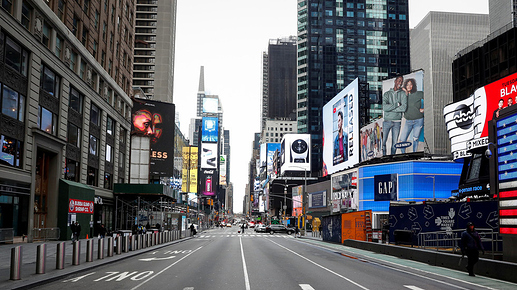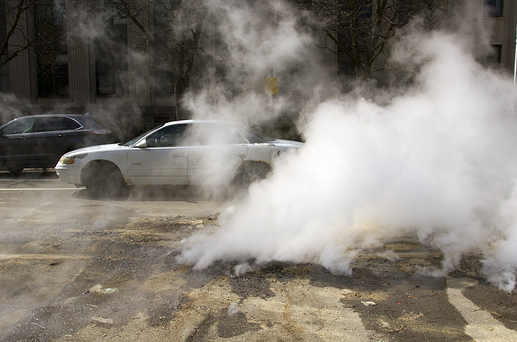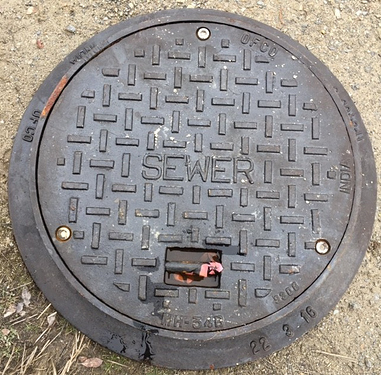This is my latest “our bold polymeric future” crusade issue (one of the most pressing issues of our time):

A Whiskey Tango Foxtrot for sure.
‘The numbers in the rest of the nation are going up. To me that vindicates what we are doing here. What we’re doing here shows results,’ (Cuomo) said.
To me, it shows that NYC was hit first…
(BBC, May 6, 2020):
(STAT, May 6, 2020):
“Doctors lambaste federal process for distributing Covid-19 drug remdesivir”
Hospitals and physicians around the country are sharply criticizing the federal government for the uneven and opaque way it is distributing its supply of the Covid-19 drug remdesivir.
The experimental drug received an emergency use authorization from the Food and Drug Administration last week, after preliminary data from a clinical trial showed that it reduced how long it took hospitalized Covid-19 patients to recover. Now, as the drug’s producer, Gilead Sciences, tries to ramp up production, the U.S. government is starting to distribute the limited number of vials that aren’t needed for ongoing research, so that patients can start to see the benefit outside of clinical trials.
About two dozen hospitals are believed to have been chosen to receive the drug so far, but clinicians told STAT it is unclear why some medical centers were chosen to receive coveted doses while others weren’t - and who is making those decisions in the first place. …
… The fact that some of the hardest hit hospitals weren’t among those selected was concerning, he said. “It raises significant questions about how this was done. It’s not clear to anyone. There is no place this information can be found,” he said. …
… “We know who the vendor is - Amerisource Bergen - but we don’t actually know who is making the decision. Is it Trump? Is it FEMA? Is it science-informed?” The Federal Emergency Management Agency told STAT that the Department of Health and Human Services is handling remdesivir distribution; a HHS spokesperson said they would look into the matter. Gilead declined to comment.
Amerisource Bergen issued a statement saying it is working with Gilead and the U.S. government to distribute remdesivir to hospitals, “regardless of whether they are AmerisourceBergen customers. Decisions on which hospitals and the quantity of the product they will receive are being made by the government with AmerisourceBergen using our infrastructure and expertise to efficiently move any product we receive from Gilead in keeping with the government’s directives.”
An interesting (and somewhat surprising) effect in Seattle is that the “resident” birds lose interest in human-made structures when humans no longer walk the streets much - and have largely gone away. They reasonably see little need to suffer our steel and glass if/when little or no promise of edible tidbits appear to exist. In our alpha-predator roles, ancient birds look to us for entertainment, and “free lunch”.
(South China Morning Post, May 7, 2020):
The Covid-19 pandemic might have started as early as October, according to the latest research into the genetic make-up of the coronavirus. The pathogen, formally known as SARS-CoV-2, is thought to have made the jump from initial host to humans some time between October 6 and December 11 last year, according to an article released on Tuesday and set to be published in an upcoming edition of the scientific journal “Infection, Genetics and Evolution”.
The findings are based on analysis of more than 7,000 genome sequence assemblies collected from around the world since January. By examining the evolution of the mutations, researchers from University College London and the University of Reunion Island were able to rewind their molecular clocks to a common starting point. They were also able to identify the major mutations to the coronavirus, which has continued to evolve since making the jump to humans.
I just read in a Danish paper that they suspect COVID-19 is not at all a respiratory disease, but a disease of the blood system. That led me to look around for a bit, and MedCram has touched upon this:
"Is COVID-19 a Disease of the Endothelium (Blood Vessels and Clots)?
Their subsequent updates also talk about this.
In the Danish paper they talk about a lot of people getting clots in their limbs, heart, brain etc.
More on the above
And then there is this:
IMO to me It seems the virus is most fatal when its in the lungs though, I will need to do more research along these lines. That is the same doctor who presented a weird theory about why covid kills some and not others. My feeling is still that the disease is most fatal when the virus is inhaled in a covid rich environment. And I think if the covid is ingested or ingested through eyes the hosts immune system may be able to fight it off? I’m just hoping for the best here. And even if a person acquires covid via eyes or ingestion the virus could still multiply enough for the host to become contagious.
Bodily cells to which SASR-CoV-2 has been reported to have the most affinity are the mucus-producing cells in the nasal passage, and cells lining the insides of the intestines. Don’t sneeze or poop ! … 
COVID-19 is a systemically active, cryptic disease affecting heart, kidneys, and liver as well as lungs.
There is a company who is performing covid tests on wastewater to help calculate the area level of infection.
i know that SARS-CoV-2 affects all those internal organs, and i’m pretty sure it travels through the bloodstream, so I am curious about the mortality rate for those who have not had their lungs attacked if the mortality rate is reduced. And I am wondering if the virus can travel from the bloodstream into the lungs.
But also I hope those congested areas like New York and New Orleans might consider sealed bolt down Manhole covers:
But i’m still wondering:
Is live virus immunization being studied?
(As best I think that I understand, from what I have read), yes on the bloodstream presence (a systemic inter-organ transfer route). Some folks have presented with other than pulmonary involvement - but I don’t think that the data (from several different clinical reports) is yet well compiled and compared, etc. Over time, likely meta-studies (not studies themselves, but instead studies of the data collected by other studies, which constitute the majority of all studies conducted these days) may better characterize things like risk/mortality associated with various organ involvements. Presently, clinicians seem quite snowed by the various unknowns and complexities found. Far more questions that reliably verified answers at this point. Yes, from the bloodstream, the SARS-CoV-2 microbial antigen can traverse internal organs such as lungs, heart, kidneys, liver, intestinal (and other mucus-producing) membranes. Lungs are seemingly likely not uniquely spared from such potential systemic transfer via bloodstream.
(NEJM, May 7, 2020):
“Observational Study of Hydroxychloroquine in Hospitalized Patients with Covid-19”
Hydroxychloroquine has been widely administered to patients with Covid-19 without robust evidence supporting its use. … In this observational study involving patients with Covid-19 who had been admitted to the hospital, hydroxychloroquine administration was not associated with either a greatly lowered or an increased risk of the composite end point of intubation or death. Randomized, controlled trials of hydroxychloroquine in patients with Covid-19 are needed. …
… the findings from an early study showing a benefit of hydroxychloroquine in 26 patients who had been treated in French hospitals are difficult to interpret, given the small size of that study, the lack of a randomized control group, and the omission of 6 patients from the analysis. …
… Clinical guidance at our medical center has been updated to remove the suggestion that patients with Covid-19 be treated with hydroxychloroquine. In our analysis involving a large sample of consecutive patients who had been hospitalized with Covid-19, hydroxychloroquine use was not associated with a significantly higher or lower risk of intubation or death (hazard ratio, 1.04; 95% CI, 0.82 to 1.32). The study results should not be taken to rule out either benefit or harm of hydroxychloroquine treatment, given the observational design and the 95% confidence interval, but the results do not support the use of hydroxychloroquine at present, outside randomized clinical trials testing its efficacy.
(WIRED, May 7, 2020):
Many different pathogens are linked to blood disorders, but the specific clotting mechanisms may vary. These details matter: If we know exactly how a particular infection leads to blood clots, we can make a better guess at which drugs might be most useful as a treatment.
It’s still completely unknown how Covid-19 causes clots. It might be doing this indirectly, by ramping up inflammation throughout the body. Or it could be infecting the lining on the insides of blood vessels. These endothelial cells regulate how much fluid can flow into each vessel, and help coordinate the clotting response after injury. The virus could end up making these cells send out their clotting signals inappropriately. Covid-19 might also be causing blood problems via the adaptive immune response, Cunningham says. He wonders whether immune cells that are specifically targeted to the Covid-19 virus in later stages of infection are involved in clotting.
There are further wrinkles. For one thing, blood clots linked to Covid-19 aren’t being seen as much in some countries as others … The complication has also been more evident among those with the most severe cases of disease. … Health workers treating Covid-19 patients have been astonished to see that patients on anticoagulants still develop clots. …
… Giannis says that once he started looking into the phenomenon, he was surprised to find published papers on blood-clot risks associated with SARS and MERS. “We found out many similarities with previous coronaviruses - things we didn’t even know were reported previously. So, it was a good lesson to study all the literature and identify all the relevant studies.”
The MedCram-videos made some pretty interesting hypotheses as to how COVID-19 does it - very interesting, but gets very …medical 








